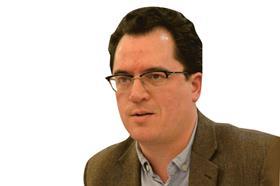The private client professional advice sector, including lawyers, is failing clients by applying an across-the-board assumption that tax avoidance is the primary aim of advice on wealth management. That was the case made by several speakers at the Law Society’s private client annual conference 2023, held at the Society’s Chancery Lane offices on 28 June.

Jake Hayman, an independent adviser to ‘values-led wealth-holders’, said: ‘The industry is overtly… linguistically anti-tax. The language is homogeneous.’ As a result, clients find themselves ‘auto-enrolled’ into tax avoidance, Hayman said. Advisers are not just passively holding such views, he pointed out: ‘The industry is lobbying for tax reduction.’
‘For the first time in my life,’ he continued, ‘extreme wealth and extreme poverty are growing.’ Client discomfort with that fact is not tested in conversations, he noted: ‘They don’t have institutionalised procedures to ask clients [the right questions],’ Hayman concluded.
Some advisers recognised this. Brabners partner Steven Appleton, head of private client at the firm, added: ‘Assumptions we make that a tool to reduce tax is what the client wants [means] failing those who are tax-proud.’
Appleton used the example of a client who decides that £90m is ‘too much money to leave to the kids’, yet finds that the ‘only journey’ professional advisers take them on ‘is into tax planning’.
Instead, Ines Uwiteto, wealth manager at Tribe Impact Capital, urged: ‘We need to ask complex, curious questions.’ The sector, she predicted, will struggle with its ‘ability to attract talent’ without a shift in its approach. ‘It’s harder when we are ethically compromised,’ she said.
‘The actions of the super-rich are incredibly important,’ Hayman said. ‘The actions of their advisers are incredibly influential.’
In that context, the position of advisers, who can guide conversations on ethics, values and culture with their clients, is changing, Appleton continued. ‘We’ve reached a point,’ he said, ‘where we are under a duty to have those conversations.’
The advice professionals give on tax is far from neutral, Hayman added: ‘Minimising tax is also political… paying lawyers instead of paying taxes – there is a view that that is unethical and undemocratic.’
Trusts, he noted, have flexibility as vehicles, and can be designed to reflect client values. ‘Trust deeds can give trustees power to do what the client would want, including on ethical investments,’ he said.
Conference chair Catherine Grum, head of family services at BDO, pointed to the growing use of family charters. The discussion within a family that is necessary to a charter’s production provided opportunities for a discussion on values, and the purpose of family wealth, she said. A charter was an opportunity to align views across generations, and to provide a guide to trustees in the future.
It was, Uwiteto said, important to realise that ‘clients will have a view’ on ‘issues around culture, ethics, values… if you as an adviser have created an environment’ where clients can express those views. ‘When you discuss risks, they are not just financial [risks],’ she said. It was possible to ‘invest for financial returns and societal outcomes’, and to make ‘investments with a purpose’, she added.
Predatory marriage timebomb
Legal protections against ‘predatory marriage’, where a vulnerable person is manipulated into marriage by another person for financial gain, are few and weak, the conference went on to hear. With an ageing population vastly expanding the number of people with conditions such as vascular dementia, necessary law reform has become urgent.
A central problem is the effect that section 18 of the Wills Act (1837) has. Under section 18, an existing will is automatically revoked on marriage.
The conference heard from Daphne Franks, a teacher of communications skills at Leeds Medical School, whose mother was the target of a predatory marriage. A man married her mother, who had advanced vascular dementia, five months before her death, and without her family’s knowledge.
‘There is a lot of overlap with grooming, gaslighting and coercive control,’ Franks said. ‘Laws and procedures have not kept up with the huge increase in dementia.’
She identified key faults in the law. Power of attorney ‘has no bearing on marriage’, she said. Her mother was not judged by her oncologist capable of consenting to treatment for cancer, Franks noted, but was allowed to marry.
There was also an absence of ‘joined-up safeguarding’, the experience of Franks’ mother showed, she said. When it came to the role of the registrar, social services, police and lawyers, each should have asked ‘one more question than you are comfortable with’,. With such attention to detail absent, ‘the law protects the predator’, she concluded.
‘The damage is done at the point of marriage,’ Andrew Bishop, principal associate at Rothley Law, who advocates reform, said. ‘Capacity [necessary] to marry is lower than capacity to make a will,’ he noted, ‘an inconsistency that doesn’t make sense.’
For more details on the Law Society’s Private Client Section, click here































1 Reader's comment